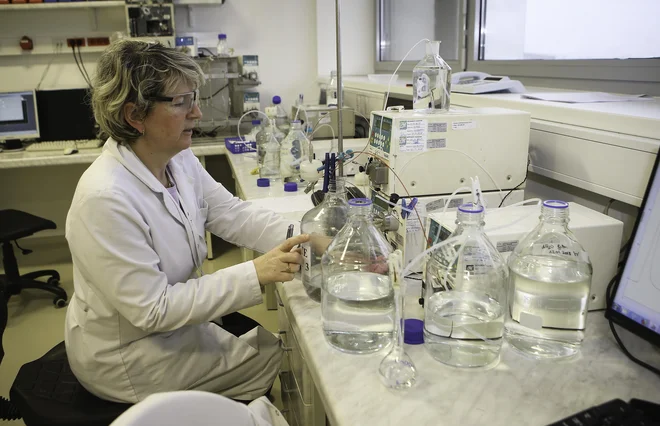The Federal Tax Service is ready to make their data on the economic activities of the legal entities publicly available

The Federal Tax Service (Federal Tax Service) builds its significance as an institution for assessing the reliability of business – the department can receive authority to analyze data on legal entities and the formation of official extracts with its results for the needs of the state order, to provide state support for business and to reduce the risks of market deals. Entrepreneurs will be able to request data on the financial and economic activities of counterparties not through the service agents, but directly from the Federal Tax Service. The resulting extract will become a confirmation of the trustworthiness of the company in the courts, lawyers believe. However, in their opinion, risks arise – discharge issued by automated systems in case of their irrelevant can cause a refusal of a transaction or loan, spoil the company’s reputation.
The Federal Tax Service may receive authority to analyze data on the activities of legal entities and form extracts with the results of the audit, providing it at the request of the legal entity itself or third parties. The government draft amendments to the law “On the tax authorities of the Russian Federation” approved by the first reading the State Duma Committee on the budget – the first reading was scheduled for June 10.
The service will be able to analyze data on the financial and economic activities of a legal entity, as well as other information available to it-to confirm the conformity of financial statements, tax returns and other information.
The explanatory note to the project says that such data will be needed by market participants for pre -contractual inspections of counterparties and during procurement. The state needs them to ensure the safety of budget expenditures in the provision of regional tax benefits and through the line of state defense order.
In fact, the expansion of the powers of the Federal Tax Service is necessary for the full operation of its service for assessing legal entities – from March 15, 2023 it has already been launched in experimental mode and is available to all organizations. If the counterparties were requested through the service, then before sending to third parties, the tax will first provide the document for the legal entity and give time to adjust the data in case of disagreement with them.
According to the government, the tool will facilitate the verification of counterparties.
Now the business independently does this with the help of extracts from the register about registration and the founders of the company, public financial statements and indirect data (court claims, the presence of the company in the registry of unscrupulous suppliers), as well as through the AGROGRAGS Services, “Contour. Focus” and others. “This routine was required to form a evidence base of good faith in case of tax disputes or trials. The courts emphasized: the company is obliged to confirm that it took all reasonable measures to assess the reliability of the partner, ”says Vyacheslav Kosakov, managing partner of Novator Legal Group.
At the same time, the risks of tax additional charges were preserved, since these services did not guarantee that the tax service would agree with their conclusions. “The new extract will give an official assessment of risks from the Federal Tax Service, which can be used in disputes with the tax authorities, justifying conscientiousness when choosing a counterparty. Now a similar assessment can be requested on the website of the tax service, but it does not have an official status, ”explains Yuri Mirzoev, general director of the Mitra National Law Company.
Note that the new extract may contain all the data that does not constitute tax secrets. This is information about the organization from the Unified State Register of Legal Entities or Buhotsky, which are now received in the state system on request, data on the tax specialized tax used, about the number of employees, on tax violations and responsibility for them, on the amounts of a single tax payment for the last year, on income and expenses according to financial statements for the last year and so on.
The new extract of the Federal Tax Service will offer an official and standardized “financial portrait” of the counterparty – for business, this means a significant simplification of Due Diligence (the procedure for checking the transaction object), Vyacheslav Kosakov is sure.
The FTS assessment will strengthen the position of legal entities in front of the auditing authorities, but its ignoring its risks. “If the extract indicates signs of the unreliability of the counterparty (for example, the discrepancy between the Federal Tax Service of Tax payments or reporting), the company will no longer be able to argue its ignorance. In court or on a tax audit, this can be regarded as conscious cooperation with a dubious partner, especially in cases related to VAT or income tax, ”the lawyer adds. According to the head of the financial and economic studies of Alfapro, Lyudmila Khapugina, a similar extract by virtue of its origin is an act of the executive body and contains a judgment of the tax authority on the degree of compliance with the control ratios between financial, economic indicators.
Lawyers also note the risks from the introduction of a new service. According to the bill, the Federal Tax Service itself will approve the analysis methodology, the procedure for requests and extract formats. “The bill blanket and key provisions are given to the Federal Tax Service of the Federal Tax Service,” says Yuri Mirzoev. “If the analysis methodology is subjective, the extract can become a business pressure tool: a note on“ inconsistent with the tax criteria ”can cause a refusal of a deal or loan, spoil the reputation of the company.” Lyudmila Khapugina agrees: the strengthening of preventive tax control measures can lead to controversial situations in which automated systems can give irrelevant results.








